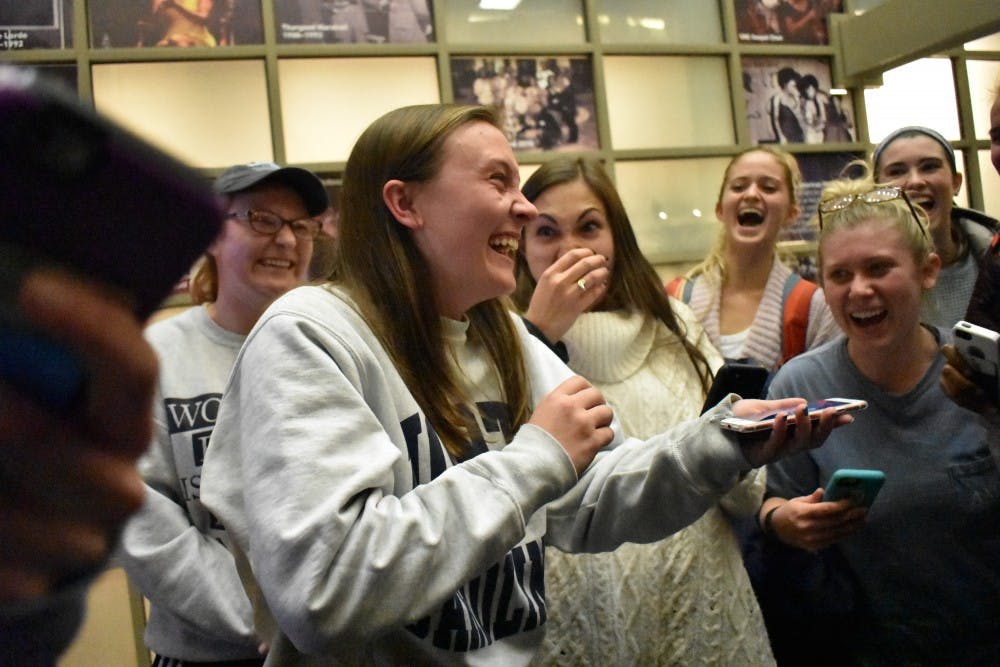Later in June, UNC’s Black Congress wrote Putnam a list of demands, among them, providing transparency around the implicit bias training, the progress of the diversity council and to call for Silent Sam’s removal.
Putnam was vague when asked about her administration’s current relationship with Black Congress.
“Working. I mean, just putting our nose down and working and collaborating with various different student groups across campus," Putnam said.
Concerning her overall diversity outreach, Putnam highlighted the implicit bias training and a town hall held with Black Congress concerning Silent Sam.
“That committee (Multicultural and Diversity Outreach) has just been full-fledged working very hard, full steam ahead and will continue to do really great stuff in the future," Putnam said.
Her administration has placed significant importance on mental health, establishing a Mental Health Task Force for undergraduate students this year.
“I think the reason I’m most proud of it is because it was built from the ground up,” Putnam said. “The stigma’s decreased, people are talking about it and starting those conversations is something that I’m really proud of my team for doing.”
Emma Caponigro, a UNC junior and co-director of the Mental Health Task Force, highlighted the importance of the task force’s creation.
“In general, I think just having a tangible group in student government working on this has helped to increase awareness about mental health and mental illness and helped to eliminate stigma,” Caponigro said.
The task force created initiatives such as Mental Health Mondays to raise awareness for and encourage the use of mental health services. It also established a mental health coalition, bringing together the various mental health organizations on campus.
“I think first with the coalition bringing all these groups together has really allowed us to better collaborate,” Caponigro said. “Just last week, the Mental Health Task Force collaborated with Rethink Psychiatric Illness to host an event about studying abroad, specifically well-being and mental health abroad. That’s something that we couldn’t have done without the coalition.”
In the process of establishing mental health and other subjects as priorities during her campaign, Putnam reached out to students for their input. In doing so, she recognized the disconnect between the student body and student government.
To get the day's news and headlines in your inbox each morning, sign up for our email newsletters.
“Often what happens is that students don’t know what student government is doing, but student government is impacting their day-to-day life,” Putnam said.
To improve its relationship with the student body, Putnam’s administration placed emphasis on restructuring student government. Undergraduate Secretary Torin Edwards leads this effort with the Undergraduate Student Communications Task Force.
“At the end of the day though, my job is about making it so that student government is able to show what we’re working on and making it so that students know that we’re working for them,” Edwards said.
Edwards and the communication team have been working on the #PeopleBehindThePolicies social media campaign.
“We’ve tried to put more of a face behind student government,” Edwards said. “It’s a social media campaign that we’ve been doing for the whole year. We’ve really stressed showing as many students as we can who are a part of student government and showing why they wanted to be both students and members of student government.”
Putnam’s administration will continue their work throughout the spring semester.
“Our term is officially over in April,” Putnam said. “So, until then, it’ll be nose to the grindstone, just working hard."
@praveenasoma
university@dailytarheel.com



